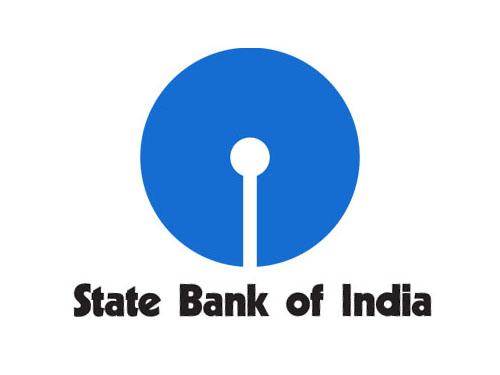Comprehension For SBI PO set – 7

Comprehension set – 7
We have inherited the tradition of secrecy about the budget from Britain where also the system has been strongly attacked by eminent economists and political scientists including Peter Jay. Sir Richard Clarke, who was the originating genius of nearly every important development in the British budgeting techniques during the last two decades, has spoken out about the abuse of budget secrecy: “The problems of long-term tax policy should surely be debated openly with the facts on the table. In my opinion, all governments should have just the same duty to publish their expenditure policy. Indeed, this obligation to public taxation policy is really essential for the control of public expenditure in order to get realistic taxation implications.” Realising that democracy flourishes best on the principles of open government, more and more democracies are having an open public debate on budget proposals before introducing the appropriate Bill in the legislature. In the United States the budget is conveyed in a message by the President to the Congress, which comes well in advance of the date when the Bill is introduced in the Congress. In Finland the Parliament and the people are already discussing in June the tentative budget proposals which are to be introduced in the Finnish Parliament in September. Every budget contains a cartload of figures in black and white-but the dark figures represent the myriad lights and shades of India’s life, the contrasting tones of poverty and wealth, and of bread so dear and flesh and blood so cheap, the deep tints of adventure and enterprise and man’s ageless struggle for a brighter morning. The Union budget should not be an annual scourge but a part of presentation of annual accounts of a partnership between the Government and the people. That partnership would work much better when the nonsensical secrecy is replaced by openness and public consultations, resulting in fair laws and the people’s acceptance of their moral duty to pay.
1. How do the British economists and political scientists react to budget secrecy? They are
(a) in favour of having a mix of secrecy and openness.
(b) indifferent to the budgeting techniques and taxation policies.
(c) very critical about maintenance of budget secrecy.
(d) advocates of not disclosing in advance the budget contents.
(e) None of these
2. The author thinks that openness in budget is essential as it leads to
(a) prevention of tax implications
(b) People’s reluctance to accept their moral duties
(c) exaggerated revelation of the strengths and weaknesses of economy
(d) making our country on par with Finland
(e) None of these
3. The author seems to be in favour of
(a) maintaining secrecy of budget
(b) judicious blend of secrecy and openness
(c) transparency in budget proposals
(d) replacement of public constitution by secrecy
(e) None of these
4. The secrecy of the budget is maintained by all of the following countries except
(A) Finland
(B) India
(C) United States
(a) Only A
(b) Only B
(c) Only C
(d) A and C
(e) B and C
5. Which of the following statements is definitely TRUE in the context of the passage?
(a) The British Government has been religiously maintaining budget secrecy.
(b) Budget secrecy is likely to lead to corrupt practices.
(c) Consulting unjustifiable taxes with public helps make them accept those taxes.
(d) There should be no control on public expenditure in democratic condition.
(e) None of these
6. Sir Richard Clarke seems to deserve the credit for
(a) transformation in the British budgetary techniques.
(b) Maintenance of secrecy of the British budget.
(c) detection of abuse of transparency in budget.
(d) bringing down the tax load on British people.
(e) None of these
7. From the contents of the passage, it can be inferred that the author is
(a) authoritarian in his approach.
(b) a democratic person.
(c) unaware of India’s recent economic developments
(d) a conservative person.
(e) None of these
8. Which of the following statement(s) is/are definitely False in the context of the passage?
(A) Transparency helps unscrupulous elements to resort to corrupt practices.
(B) Open approach of Government is a sign of healthy democracy.
(C) People’s acceptance of their moral duties can best be achieved through openness and public consultations.
(a) Only A
(b) Only B
(c) Only C
(d) A and B
(e) B and C
9. For making the budget realistic, the Government should
(a) refrain from making public the proposed provisions before finalization.
(b) discuss it secretly within themselves.
(c) encourage the public to send in their suggestions.
(d) consult the public to send in their suggestions.
(e) None of these
Directions (Q. 10-12): Choose the word which is most nearly the SAME in meaning to the word printed in bold as used in the passage.
10. SCOURGE
(a) ritual
(b) presentation
(c) whip
(d) compromise
(e) remedy
11. MYRIAD
(a) adequate
(b) functional
(c) incompatible
(d) abundant
(e) excellent
12. DUTY
(a) obligation
(b) imposition
(c) tax-liability
(d) function
(e) job
Directions (Q. 13-15): Choose the word which is most OPPOSITE in meaning to the word printed in bold as used in the passage.
13. FLOURISHES
(a) disappears
(b) degenerates
(c) vanishes
(d) blooms
(e) opens
14. DEBATED
(a) questioned severely
(b) opposed strongly
(c) accepted unconditionally
(d) discussed frankly
(e) implemented forcibly
15. IMPORTANT
(a) major
(b) uncountable
(c) significant
(d) unscheduled
(e) trivial
Answer key:
1. (c) 2. (e) 3. (b) 4. (d) 5. (e) 6. (a) 7. (b) 8. (a) 9. (d) 10. (c) 11. (d) 12. (a) 13. (b) 14. (c) 15. (e)


